Three ERP compliance features for US public sector companies
Use of the word ‘public’ in commercial endeavors tends to engender some confusion when it involves issues of compliance. On the one hand, the term ‘public company,’ relates to an enterprise that is owned by individual shareholders, or large-scale financial entities who invest in the company.
Consequently, a ‘public company’ is a corporation whose stock is freely traded on a stock exchange, and therefore can be referred to as a ‘publicly-traded’ firm. This description applies to companies such as; Amazon, Apple and JP Morgan.
On the other hand, a ‘public sector company’ is a wholly-owned firm operated by the government, yet providing internal, or extra-governmental, services to the population at large. This description applies to companies such as Amtrak, Commodity the , Corporation for Public Broadcasting, and the Legal Services Corporation.
This latter enterprise category requires the activation of a number of ERP compliance enhancements on top of Sarbanes-Oxley rules and policies. These include;
1. Enhanced security processes
Public sector companies are particularly prone to security breaches, due to direct integration within at-large governmental agencies. The unfortunate fact is that large-scale bureaucracies tend to be brittle, due to the sheer size of their infrastructures, and consequently, sometimes lose sight of threat vectors that might ordinarily be identified in private companies.
Consequently, the introduction of any ‘new’ ‘improved’ or ‘updated’ ERP platform should include the latest attack patterns, in addition to maintaining internal awareness and employment of enhanced policies, systems and methodologies. As an example, a recent NIST report entitled ‘DRAFT NISTIR 8170 - The Cybersecurity Framework Implementation Guidance for Federal Agencies”</a>, should be followed within any ERP-driven public-sector organization in order to ensure that end-to-end security compliance established.
2. Deep auditing
Because governmental entities largely base themselves on compliance validations driven by historical data, public sector ERP operations demand the regular; and highly-granular auditing of previously stored operational data and metrics. Conversely, private sector companies tend to shy away from static storage unless specifically required to do so, since the maintenance of this level of data density tends to become a costly burdensome over time.
3. Comprehensive regulatory management capabilities
As one might expect, regulatory policies, rules and updates are part of any public sector operation. In concert with the granular maintenance of historical data or metrics for audit purposes, regulatory information applies accordingly. Therefore, any public sector ERP system that is designed and purpose-built to support a public-sector operation should include a robust regulations-based management capability in order to support this specific requirement.
These three features are intrinsic to all comprehensive ERP platforms for the public-sector. Nevertheless, it should also be understood that these capabilities are only just a few of the host of enhanced elements that differentiate themselves from private firms. Consequently, please ensure that you’re sure looking at the right platform for your operation, since missing something salient could cost you a lot of money, and time, if you make the wrong decision.
Free white paper
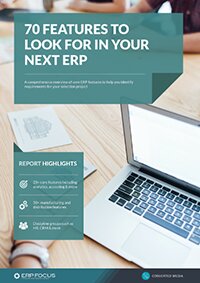
70 features to look for in your next ERP
A comprehensive guide to help you identify requirements for your ERP selection
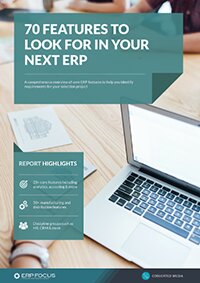
Featured white papers
-
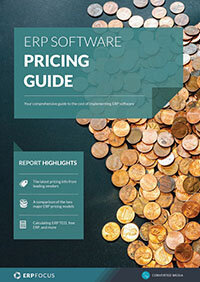
ERP Software Pricing Guide
Get the latest pricing information on over 80 popular ERP systems, and learn how to budget for your ERP project in our free guide
Download -
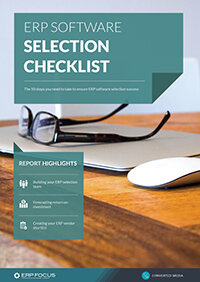
60-Step ERP Selection Checklist
Get the comprehensive checklist for your ERP selection project
Download -
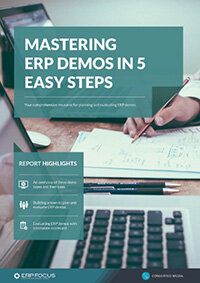
ERP Demo Guide & Scorecard
Master your ERP demo with 5 easy steps using our free guide (includes demo scorecard)
Download
Related articles
-

How to evaluate your ERP RFP responses
The dos and don'ts of evaluating ERP RFPs (including RFP evaluation matrix)
-

Secret KPI: Why Your ERP Implementation Team Matters More Than Software
Learn how Godlan ensures successful ERP implementation for manufacturers with proven strategies &...
-

The best ERP systems for process manufacturing
Consider these ERP systems when selecting your next process manufacturing ERP

